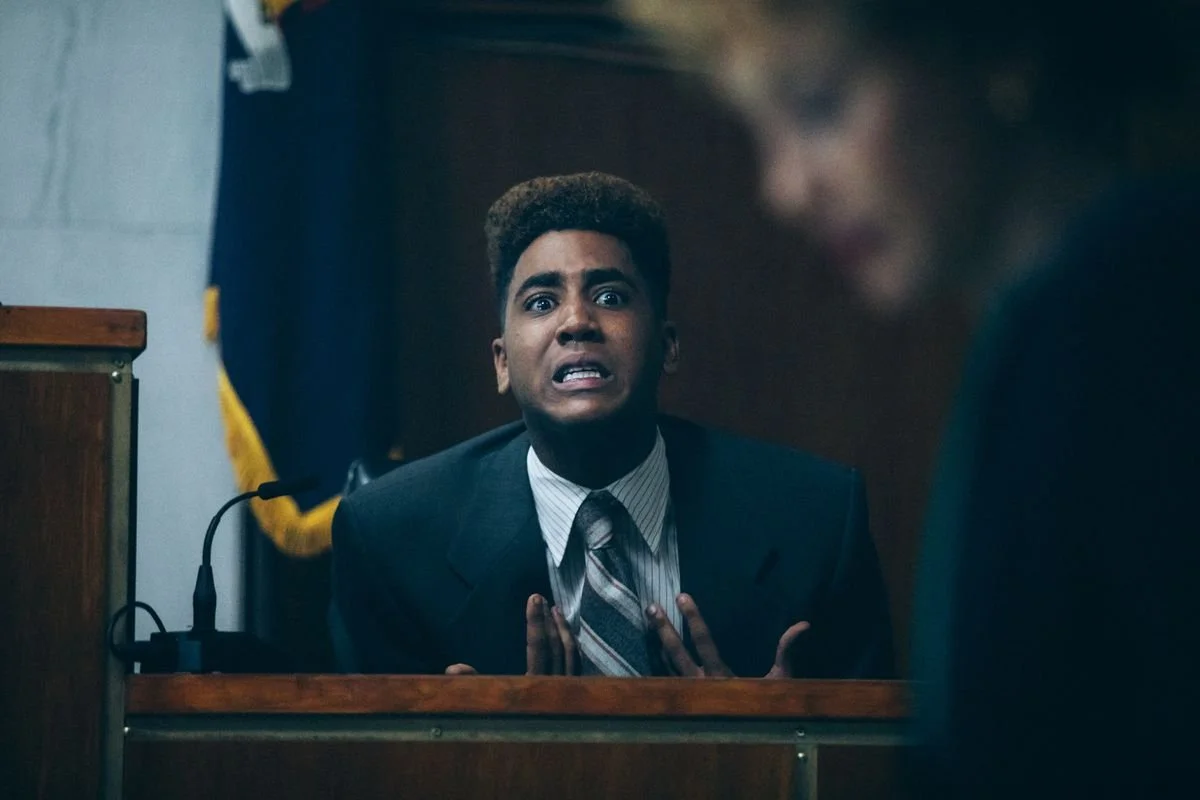T.V. Review: 'When They See Us'
Netflix's latest limited series is a gut-punching four episode saga of the darkest evils of the U.S. Justice System. When They See Us, directed by Oscar-nominee and Emmy-winner Ava DuVernay, is a raw retelling of the notorious Central Park Five case. Five young boys of color, Yusef Salaam, Antron McCray, Korey Wise, Kevin Richardson, and Raymond Santana, were coerced by the NYPD to falsely admit to riot and the rape, sexual abuse, robbery, sexual assault, and attempted murder of a white female jogger by the name of Trisha Meili. The case was one of the most publicized trials of the 1980s. In 2016, this story gained a new wind of notoriety during Donald Trump's presidential run; in 1989, Trump paid $85,000 for newspaper ads calling for the death penalty for the five boys.
In DuVernay's 2019 retelling the story is dark, grim, and clear —black and brown lives have never been worth much, even in one of the most liberal cities in the United States. In When They See Us, Ava relies on a gloomy color palette of dark blues, browns, grays, and blacks. The palette simultaneously conveys the gruesome facts of the attack on Meili and the state's attack on those innocent boys. Furthermore, the cinematography is intense and unwavering. During the scenes where the boys, ages 14-16, were illegally interviewed alone and bullied into repeating a story made up by detectives, the camera maintains an almost inhumane stillness forcing the audience to sit in that trauma and horror.
When They See Us is anchored by two main elements: the soundtrack and the acting performances. The musical direction of When They See Us is nothing less than stellar. There is the excellent placement of Jay-Z's "U Don't Know" during Raymond's post-prison return to Harlem and the tender use of Frank Ocean's cover of "Moon River" towards the end of the series when the five boys, now men, get their records completely exonerated. The soundtrack of this series expertly catches the ruggedness of New York City and the power of a mother's love.
With the more recent murders of Trayvon Martin and Michael Brown, we have seen the rise of the Mothers of the Movement — black mothers who have devoted their lives to the Black Lives Matter cause. In When They See Us, DuVernay uses a solid screenplay and stronger acting performances to display the emotional strength of the mothers of the five wrongly convicted boys. Marsha Stephanie Blake, who played McCray's mother, and Niecey Nash, who played Wise's mother, gave some of the strongest performances. Blake's quiet strength in the face of an unfaithful husband and a wrongly convicted son was nothing short of moving. Her portrayal of a mother desperately trying to hold her family together while their world is falling apart was phenomenal. Niecy Nash, on the other hand, delivered what is arguably the strongest performance of her career so far. Niecy was able to portray a fierce love for her son while also portraying a vitriolic hatred for her older transgender son. Without giving too much away, there are two scenes in Part 4 of When They See Us that are absolutely jaw-dropping. Nash was utterly excellent in this series.
Felicity Huffman (Linda Fairstein) gave a noteworthy performance of a lead investigator with a deluded definition of justice that excluded brown and black lives. Her steadfast demeanor was evil, and at times, sad, but never boring or overdone.
All five of the young actors were terrific in their roles. In particular, Jharrel Jerome of Moonlight fame was fantastic. His Korey Wise was terrified, naive, and bewildered. His performance was perhaps the most painful to watch because Korey ended up in an adult prison (he was 16) simply because he went down to the station as moral support for his friend, Yusef Salaam. Furthermore, adult Korey Wise, also played by Jerome, was heart-wrenchingly manic as he kept himself in solitary confinement because he was constantly attacked and refused to accept responsibility for the crimes for which he was wrongly convicted. Jharrel Jerome's ability to completely embody both the young and adult versions of Korey Wise, and strike his specific emotional chords of growth and innocence was awe-inspiring. Every actor involved gave strong performances, especially considering that the screenplay was a bit lacking in intensity at times.
When They See Us is an absolutely riveting piece of work. This is Ava DuVernay's strongest project to date, and many careers should launched thanks to this project. This is the story we needed and deserved in 2019 — a reflection on our prejudices and biases and a call to action to achieve real comprehensive justice.
SCORE: 93

